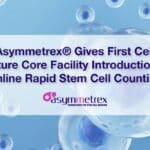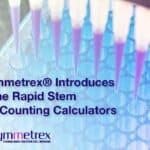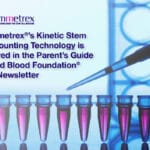Ad Hoc Stem Cell Medical Research? Eight General Principles For Its Advance
Stem cell medicine has a new rapidly moving frontier of research and treatment activity. To help keep that frontier from getting too wild, stem cellbiologist and physician scientist James Sherley recently teamed up with Boston Biolife to provide continuing stem cell medical education to doctors who are evaluating stem cell treatments for patients in their practices. Such treatment evaluations by individual physicians are increasing at such a rate that, if pursued ideally, they could make quite a significant contribution to stem cell medical research.
The recent sudden acceleration in stem cell medical research is largely driven by two developments: 1) knowledge that stem cells can be found in readily available patient sources like bone marrow and fat tissue; and 2) the idea that, in addition to providing direct tissue cell restoration in their source tissues, tissue stem cells might act to accelerate and improve recovery from diseases or injuries, even in organs and tissues different than their own source. The latter heterologous stem cell strategy, which includes for example using bone marrow stem cells for treating heart failure or fat-derived stem cells for treating injured joints, opened up the new realms of treatment possibilities now under evaluation.
The number of heterologous stem cell treatments administered ad hoc by doctors who treat patients with chronic debilitating disorders and illnesses may now exceed even the hundreds in FDA-approved clinical trials. Thus far, many reported heterologous treatments show no safety issues; and the FDA has recently issued guidance for acceptable methods for handling tissue cells before autologous injection (e.g., “minimal manipulation). Within these constraints, there is a large opportunity for ad hoc stem cell medical research by innovative physicians to expand even more widely, within good, safe, medical practice.
In light of this sea change in how stem cell medicine is advancing, Sherley encourages physicians to adopt the following eight main principles in their stem cell medical practice:
- Obtain well-informed consenting documentation for treated and untreated patients, with clearly defined inclusion and exclusion criteria. Insure that both types of patients are made well aware of the documented experience with treatment within the treating office, as well as quantitative outcomes of reported studies of similar treatments. Also document information on patients who decline treatment. Provide justifiable positive to negative expectations based on patients’ specific cases.
- Before treatment, document relevant subjective and objective patient clinical data, ideally in a quantitative format.Perform treatment site imaging when possible.
- Develop a standardized clinical procedure, including tissue cell preparation.Use consistently. Document deviations and changes.
- Document specific metrics for the transplanted cell preparation including: final carrier solutions, preparation time, temperature, total cell count, total viable cell count, a progenitor cell marker count, and a common, non-stem tissue-specific cell marker count.
- Perform standard quality control tests for bacterial contamination.
- Monitor and document treatment outcome with a defined set of subjective evaluations and objective clinical measurements.Perform treated site imaging when possible.
- Accrue, organize, and report findings at conferences and in publications.
- Stay abreast of developments in new FDA guidances and rules.
Incorporation of these general principles into the currently exploding practice of stem cell medicine would benefit individual patients with better care. More relevant to the issue at hand, aggregate analyses of the reported findings from well-designed and well-documented treatment evaluations would inform whether or not heterologous stem cell treatments can provide medical benefit. “This,” Sherley says, “is really what we all need to know as soon as possible. It’s time to move on from tourism to ‘sure-ism.’ Done ethically and scientifically, physician communities could get to this answer long before companies in expensive, weakly designed, clinical trials.”
James L. Sherley, M.D., Ph.D. is founder and director of Asymmetrex, LLC, a Boston start-up company developing technologies for counting and producing adult tissue stem cells for applications in drug development, regenerative medicine, and gene-editing therapeutics.







Leave a Reply